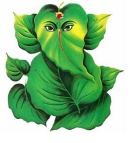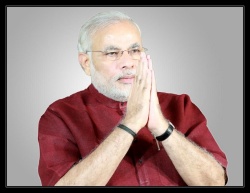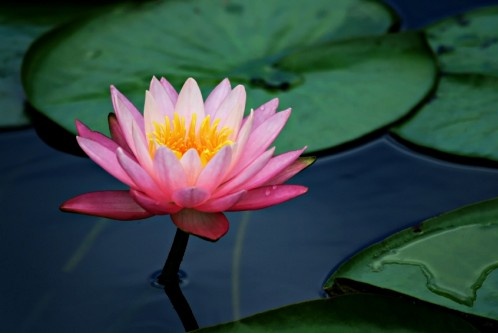Chapter 3: Talks Between Lord S’iva and Satî
(1) Maitreya said: ‘The this way continuing heartfelt enmity that existed between the son- and father-in-law, covered even a very long period of time. (2) When Daksha was appointed the chief of all the progenitors of mankind by Brahmâ, the supreme teacher, he became very puffed up. (3) Neglecting S’iva and his followers he, after first performing a Vâjapeya [‘the drink of strength or battle’] sacrifice, began the best of sacrifices called the Brihaspati [the chief offerer of prayers and sacrifice]-sacrifice. (4) To that all the godly and learned of wisdom, the ancestors and the demigods and the nicely decorated wives accompanying their husbands, assembled. (5-7) Satî, the daughter of Daksha and wife of S’iva, heard the denizens of heaven talk about the great festival to be performed by her father, and when she saw near her residence the beautiful wives of the godly ones with glittering eyes and earrings from all directions, in nice dresses and fully ornamented, fly about along with their husbands to go there, she highly anxious addressed her husband, the Lord and master of the Bhûtas [the ones of matter and the dead]. (8) Satî said: ‘Your father-in-law, Daksha, is about to begin a great sacrifice where all the godly ones are going and where we surely thus also may go to, my dearest, if you desire so. (9) Surely my sisters with their own husbands will also be going there eager to see their relatives; could you please accept to attend to that assembly with me and all the ornaments given to me? (10) Surely I will meet there with my sisters and their husbands and my affectionate aunts and my mother; for a long time I’ve been waiting to see them as well as the sacrificial flags raised by the great sages, o merciful one. (11) By you, as the unborn, appears this external manifestation, created from the soul as an interaction to the three modes, so wonderful; nevertheless I consider myself, as a woman to your pleasure, not conversant with the truth, and as your poor one, I would like to see my place of birth, o Bhava [S’iva as the Lord of existence]. (12) O immaterial, blue-throated one, surely are the other women, ornamented and with their husbands and friends, in large numbers flying there, beautifully in the sky with their white swans carrying them high. (13) How can I be physically unaffected, o best of the demigods, as a daughter hearing of the festival taking place in the house of my father; even being uninvited one can go the house of a friend, one’s husband, one’s father or spiritual master, isn’t it? (14) Be therefore kind to me, o immortal one, and fulfill my desire, o your honor, o compassionate Lord, in the full of seeing me as the other half of your body; please be so gracious to answer my request’.
(15) The sage said: ‘The deliverer from mount Kailâsa [Lord S’iva], thus addressed by his dearest, replied, being dear to his relatives, smilingly, while remembering the heart-piercing malicious words that Daksha had spoken in the presence of the guardians of the creation. (16) The great Lord said: ‘What you said, my dear beauty, is certainly true: one can, even uninvited, go to friends, provided they are not finding fault or, more important, are not of anger being proud in their identifications. (17) By the six qualities of the pious of education, austerity, wealth, beauty, youth and heritage are the ones who are arrogant blinded; not looking for the glories of the great souls do they lose their good sense and get they estranged in untruth. (18) One should not go to the house of relatives and friends who, dependent in that, are disturbed that way in their minds and give their guests a cold reception regarding them with raised eyebrows and anger in their eyes. (19) One is not as much hurt by the arrows of an enemy as one, in a part of one’s heart, is aggrieved by the deceitful, harsh words of relatives from which the one being hurt suffers day and night. (20) It is clear that you, being of the best behavior, with your pretty face, are considered the darling of the daughters of the Prajâpati [Daksha], yet, with me not being honored by your father, will you, from being connected with me, meet with pain from him. (21) One who with a burning heart is in distress is, concerning the pious reputation of those who in their minds are always looking for the original person, not able to rise directly to merely the standard of them, as much as demons can’t who envy the Lord. (22) O dear young wife of mine, the intent to mutually stand up and welcome one another with obeisances is proper, but certainly do the ones of wisdom with the intelligence unto the Supreme direct themselves to the Original Person that sits within the body, and certainly not to the one who has set his mind on the body. (23) The pure consciousness known as Vâsudeva is revealed there [within] because the person is then in goodness and not covered [by darkness]; in that is by me the Supreme Lord always respected by the name of Vâsudeva [the ‘God of the Soul’] because He is the transcendental. (24) Therefore your father, Daksha, and his Vis’vasrik followers present at the sacrifice are not to be met, although he gave you your body, o Satî, as he has enviously insulted me, who was innocent, with cruel words. (25) If you decide to go in neglect of my words, will things not turn out good for you; when you are insulted by your relative, will that insult directly equal death.







